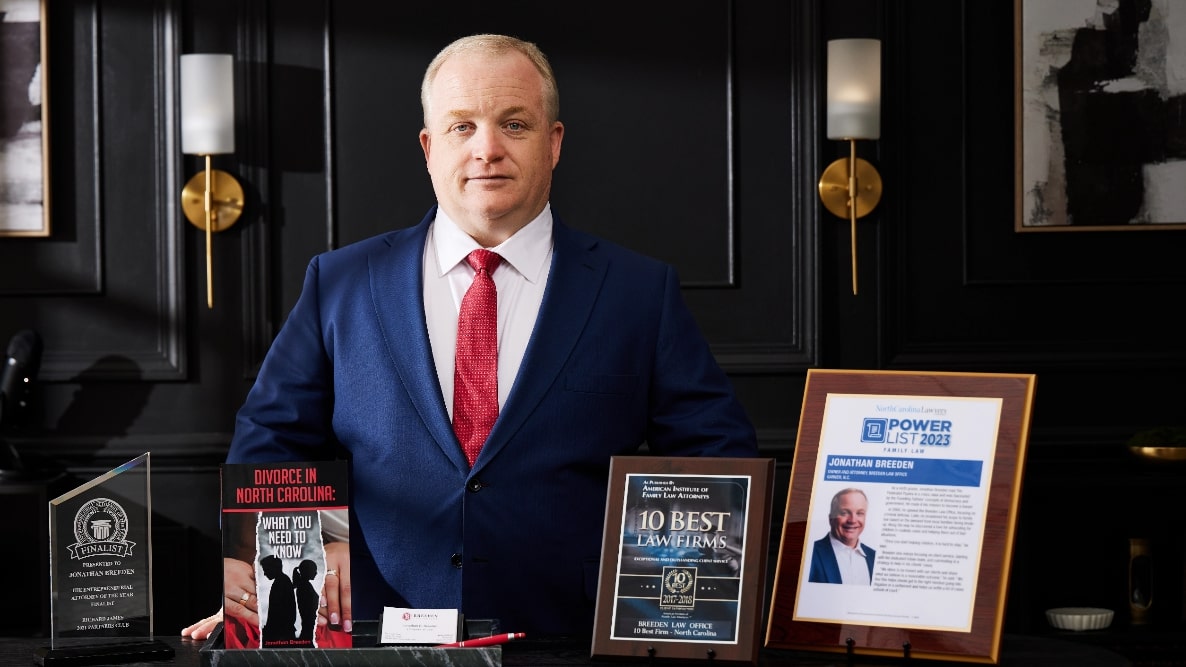Our Origin Story & Mission
EVERY HERO FACES ADVERSITY
Growing up in a tough environment, Attorney Jonathan Breeden fought back and now fights for others facing family legal battles. For over 25 years, the Breeden Law Office has empowered families in North Carolina—helping mothers, fathers, and hard-working people take control, protect their kids, and secure better futures.
With a focus on safeguarding children and standing up for mistreated spouses, we’re the ally you need for whatever family challenges lie ahead. Your story is just beginning – call Breeden Law today.
More About Breeden Law Office
About the Firm
Founded in 2005, the Breeden Law Office serves Johnston, Wake, and Harnett counties. We are unique, answering our clients’ questions before they ask them.
Watch Video
WHY CHOOSE BREEDEN LAW OFFICE:
25
+Years of Experience
4
+Office Locations
20
+Attorneys and Staff Members
1,000
+Clients Served
300
+5-Star Reviews
Understanding Minor Power of Attorney
A North Carolina minor power of attorney is a person who is permitted by a child’s parent or legal guardian to make choices for the child on their behalf. The power of attorney form can be limited to certain decisions in one specific area, or it can cover a wider range of issues. A minor power of attorney is generally called an “agent” or an “attorney-in-fact.”
When Do Minors Need Power of Attorney?
If a child has parents, why would they need a non-parent to make decisions for them? A minor power of attorney is often needed when a parent or legal guardian is temporarily unavailable. This can mean the parent or guardian is:
- Seriously ill, but expected to recover
- A member of the military who is deployed
- Unavailable due to travel or other reason for a certain period of time
Parents can fill out a power of attorney form, or they can contact a North Carolina power of attorney lawyer to help them draft the proper paperwork. Working with an attorney allows them to provide more detailed instructions to the attorney-in-fact.
Does a Minor Power of Attorney Affect Parental Rights?
When a parent grants decision-making authority to an agent, they are not giving up their parental rights. Parents always have the power to make decisions and care for their minor children.
A minor power of attorney is a temporary, revocable agreement. The parent can include a date of revocation. If that date is unknown, they can fill out a Revocation of Minor Power of Attorney form at a later date. If the minor turns 18, the minor power of attorney is automatically revoked.
What Can a North Carolina Minor Power of Attorney Do?
A power of attorney for care of minor child is often used for a child’s medical needs. The attorney-in-fact is generally permitted to choose a doctor, dentist, and any other necessary healthcare provider on behalf of the parent.
They can also authorize immunizations, surgical procedures, or other specialized care. Physicians, nurses, and hospital staff are expressly permitted by the state to accept the decisions made by a North Carolina minor power of attorney as if they were the child’s parent.
However, most school systems in North Carolina will not recognize the attorneys in fact to enroll a child in school or make educational decisions. If you as the attorney in fact need to deal with a child’s education you may want to consider filing for custody of the child.
Because powers of attorney can be so general, the parent or guardian should be as specific as possible when drafting an agreement. If there are any limitations the parent or guardian wants to place on the attorney-in-fact, they must include those in the forms.
A lawyer experienced with powers of attorney experience can offer assistance in drafting these forms. In addition to helping with the paperwork, your lawyer can go over a list of directives to ensure your power of attorney includes all of the information you need.
A power of attorney cannot be used to grant the attorney-in-fact permission to remove the minor from life support, no matter what the parent or guardian says. The state of North Carolina does not permit attorneys-in-fact to have this ability.
What If I Disagree With My Minor’s Attorney-in-Fact?
Giving someone permission to make decisions for your child’s well-being does not mean you have no right to disagree with their choices. If the attorney-in-fact has authorized a procedure or some other kind of healthcare that you don’t think is safe or necessary, you can revoke the power of attorney.
Additionally, if you don’t think there’s time to revoke the attorney-in-fact’s powers, you can overrule the decision. If a parent or other power of attorney disagrees with a decision that has been made, the state revokes the original attorney-in-fact’s decision-making power during the time of the discrepancy. During that time, healthcare for the minor will be decided according to state law.
Hear from Our Clients

